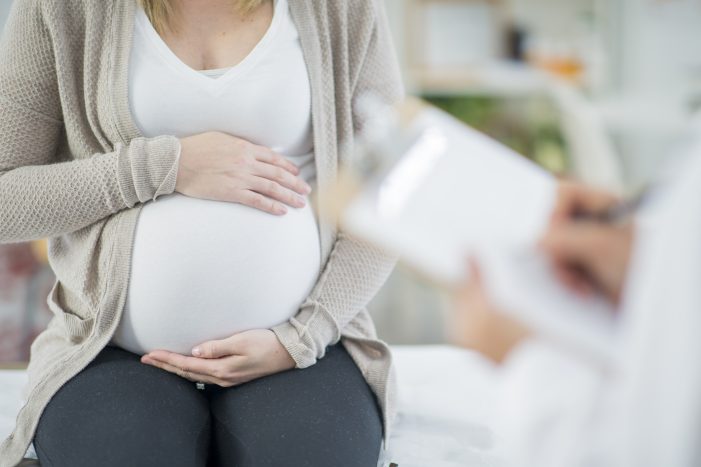Pfizer’s New RSV Vaccine for Pregnant Women on Fast Track

Amongst frantic media coverage of increases in cases of (RSV) among children, Pfizer has announced the development of an experimental bivalent RSV vaccine for pregnant mothers in an attempt to protect newborns from being infected with the virus. The pharmaceutical giant plans to submit the results of their RSV vaccine clinical trials to the U.S. Food and Drug Administration (FDA) for approval by the end of the year.1 In March 2022, the FDA designated Pfizer’s genetically engineered RSV vaccine as a “breakthrough therapy,” which will put the review process on a fast track to liensure.2
The vaccine will create a huge market for Pfizer as it will target not only pregnant women, but also infants and seniors. In a Nov. 1, 2022 press release, Pfizer stated, “Pfizer is currently the only company with an investigational vaccine being prepared for regulatory applications for both infants through maternal vaccination and older adults to help protect against RSV.”3
According to Pfizer, the company created the RSV vaccine based on “foundational basic science discoveries made at the National Institutes of Health (NIH), which detailed the crystal struc4ure of prefusion F, a key form of the viral fusion protein (F) that RSV uses to enter human cells,” and demonstrated that “antibodies specific to the prefusion form were highly effective at blocking virus infection.” The bivalent vaccine is composed of equal amounts of recombinant RSV prefusion from subgroups A and B.4
GlaxoSmithKline Halts Late Stage RSV Trials at Suggestion of Safety Committee
In February 2022, British drug maker GlaxoSmithKline halted late-stage trials on pregnant women for their RSV vaccine. The voluntary decision was made following a safety recommendation from the Independent Data Monitoring Committee. No further details were given on what prompted the recommendations and withdrawal. However, GlaxoSmithKline is continuing its clinical trials on an RSV vaccine for elderly adults.5
RSV Cases Mild in Majority of People
RSV mainly affects babies and children under the age of two and has circulated seasonally for decades. The virus is a common respiratory illness that causes mild, cold-like symptoms in most people. The U.S. Centers for Disease Control and Prevention (CDC) website states that almost all children have had an RSV infection by their second birthday and that most infections go away without complications on their own in one to two weeks. In cases where RSV infection becomes severe, it can lead to inflammation of the lungs and airway.6
Pfizer reported data from a phase three clinical trial of its experimental RSV vaccine earlier this month, which included administration of the vaccine to over 7,000 pregnant women and infants. The vaccine is supposed to produce antibodies in pregnant women that cross the placenta to passively transfer artificial immunity to RSV in the developing fetus. Pfizer claims the Phase 3 randomized, double-blind, placebo controlled clinical trial results demonstrated that the vaccine was 82 percent effective in preventing severe cases of RSV in infants through three months old. By six months old, effectiveness decreased to 69 percent in preventing RSV illness according to trial data.7
Experts Believe Lockdowns and Subsequent ‘Immunity Gap’ to Blame for RSV Increases
Some doctors believe the surge in RSV stems from an “immunity gap” that occurred due to public health response measures designed to limit the spread of SARS-CoV-2 including lockdowns, wearing masks, and physical distancing. An immunity gap or “immunity debt” occurs when individuals are not exposed to illnesses in a typical manner so natural immunity is never achieved. This tends to especially affect children, whose immune systems are maturing while they are being exposed to common types of viruses and bacteria.8 9
In a Lancet commentary, Kevin Messacar, MD and epidemiologist Rachel Baker, MPH wrote:
Decreased exposure to endemic viruses created an immunity gap–a group of susceptible individuals who avoided infection and therefore lack pathogen-specific immunity to protect against future infection.8
Baker told CNN News that respiratory disease outbreaks will get back to their more typical occurrence as long as there are no resurgences of SARS-CoV-2. “If the coronavirus gets bad enough that more lockdowns are necessary, it could once again throw off the seasonality of other viruses,” Baker said.8
Tylenol and Amoxicillin Shortages Contribute to Fear of RSV
While RSV infections are reportedly rising among children, news of drug shortages is contributing to the anxiety and fear many have been conditioned to feel about infectious diseases, especially over the past three years. Canada is reportedly experiencing a shortage of drugs to minimize fever and pain, such as Tylenol.10 Earlier this month, officials announced a worldwide shortage of the anti-bacterial drug, amoxicillin.
Drug shortages are said to be due to supply chain issues, which have been exacerbated by an increase in patients using the medications.11
If you would like to receive an e-mail notice of the most recent articles published in The Vaccine Reaction each week, click here.
Click here to view References:
No comments:
Post a Comment